Democracy Now! Wednesday, February 5, 2025
This content originally appeared on Democracy Now! Audio and was authored by Democracy Now!.
This post was originally published on Radio Free.
Democracy Now! Wednesday, February 5, 2025
This content originally appeared on Democracy Now! Audio and was authored by Democracy Now!.
This post was originally published on Radio Free.
This content originally appeared on Democracy Now! and was authored by Democracy Now!.
This post was originally published on Radio Free.
This content originally appeared on Democracy Now! and was authored by Democracy Now!.
This content originally appeared on Democracy Now! and was authored by Democracy Now!.
This post was originally published on Radio Free.
This content originally appeared on Democracy Now! and was authored by Democracy Now!.
This post was originally published on Radio Free.
This content originally appeared on Democracy Now! and was authored by Democracy Now!.
This post was originally published on Radio Free.
This content originally appeared on Democracy Now! and was authored by Democracy Now!.
This post was originally published on Radio Free.

They are trying to elevate France recognizing Josephine Baker as a hero, yet, Amy Goodman has the ability — and whatever else is going on with the Black journalist she interviews, French journalist Rokhaya Diallo — to sidestep the tribal and religious and historical and intellectual identity of this French monster, Éric Zemmour (above image).
/cdn.vox-cdn.com/uploads/chorus_image/image/69994902/1936_Josephine_Baker___Romain_Maes___Sylvere_Maes.0.jpg)
He’s Jewish and he openly uses his Jewishness as a cuddle to get where he is today — published writer and candidate for office? Where is the money trail, that is the question. I ask this as I did get a reader’s comments (from the Dissident Voice newsletter where I am published) who is from California but has lived in New Zealand for 25 years. He’s a businessman, in hospitality, and he writes me from time to time. He is concerned with employees from South America, in his New Zealand restaurant, still skeptical of the Pfizer and how the NZ government makes it illegal to work without a series of jabs — booster madness is what 2022 will be. Just a little research on NZ —
New Zealand Terrorist Attack: The Israel Connection
“The corporate press is correct that Tarrant and Breivik follow the practices of the anti-Islam xenophobic movement on the rise in Europe, North America and now Oceania, but the key element they deliberately avoid mentioning is their strong collective affinity for the state of Israel.”
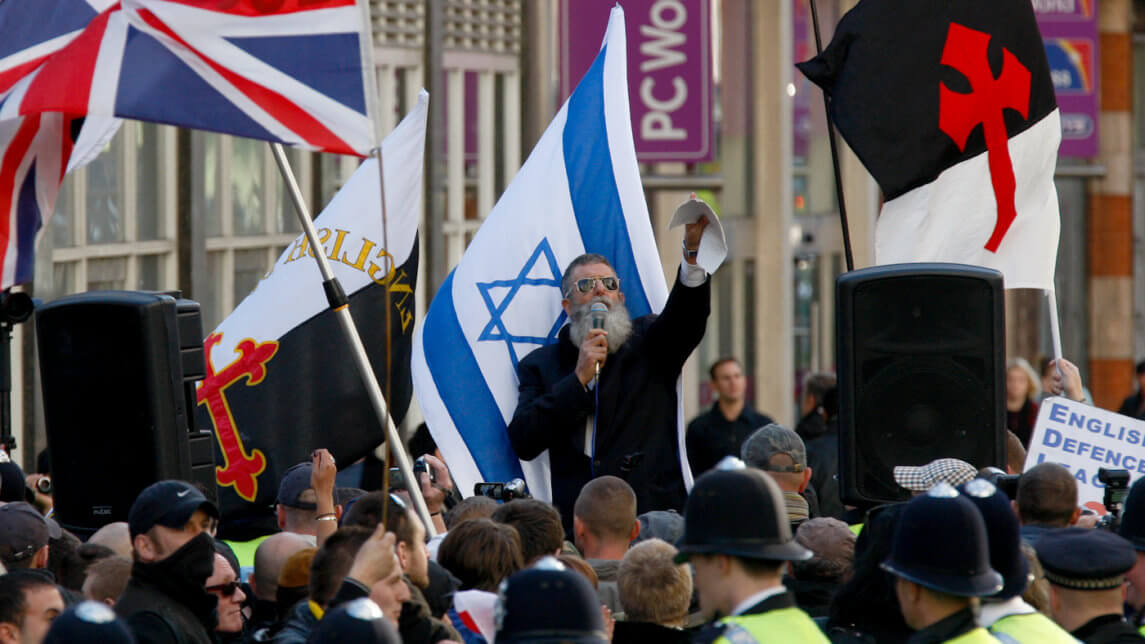
You know, the Christian Identity politics in the world, well, of course they are tied to Identity, and that is Christianity. The Jewish Identity politics (an entire country, Israel, Jewish, and like In God We Trust USA Christian nation) tie into of course, Jewish-ness. Zionism Identity, well, of course, Zionism is the identifier. Why would Jewish Amy Goodman not mention this person’s — Zemmour’s — Jewish identity? He’s anti-Muslim, and he’s a proponent of murder and mayhem. He’s misogynistic as HELL.
Oh, Josephine Baker —
‘Baker wrote about the injustices she had witnessed for a French paper, France-Soir. From Montevideo to Copenhagen, she gave talks about the evils of US segregation, and on 28 August 1963, she was the only official female speaker to speak alongside Martin Luther King at the March on Washington. In her French military uniform, Baker spoke about her own struggle for justice to a quarter of a million people. Looking out at the mix of races in the crowd, she declared: “Salt and pepper — just what it should be.”
Yet these actions did not go down well with the FBI, who had a file open against her since 1951 because of her “anti-United States statements and her fight for racial equality”. For 15 years, until Baker’s 60th birthday, they recorded her actions and called her a Communist Party apologist, not least because she occasionally partied with the Castro brothers in Cuba.’
Being the first black woman to become a global celebrity and to star in a major feature film – 1934’s Zouzou undoubtedly made Josephine Baker an influential cabaret siren and fashion icon. Yet she was also so much more. A Second World War spy for the French Resistance, a civil rights activist, a suspected communist sympathiser, and a single mother to twelve adopted children from all over the globe, Baker refused to dance to anyone’s drum but her own.
Her words still resonate today: “Surely the day will come when colour means nothing more than the skin tone, when religion is seen uniquely as a way to speak one’s soul, when birth places have the weight of a throw of the dice and all men are born free.”
(Ailsa Ross is a journalist living in the Canadian Rockies. She’s the author of The Woman Who Rode a Shark: And 50 More Wild Female Adventurers [AA Publishing, 2019])

So, how do we frame all of this through the lens and looking glass of racism and bigotry, a real foundation of Zionism, which is the founding force of the state of Israel? This by, Yoav Litvin, an Israeli-American doctor of psychology/neuroscience, a writer and photographer. His work can be found at yoavlitvin.com.
Early Zionists syncretised many aspects of European fascism, white supremacy, colonialism and messianic Evangelism and had a long and sordid history of cooperating with anti-Semites, imperialists and fascists in order to promote exclusivist and expansionist agendas.
In fact, throughout the past century, anti-Semites and Zionists have worked towards the mutual interest of concentrating Jews in Israel; the former as a means of scapegoating and expelling an unwanted population, and the latter to combat the “demographic threat” posed by native Palestinians. Further, both anti-Semites and Zionists construct Jews as a biological race, which needs to be segregated as part of a utopia of global apartheid.
Zionism is a racist and settler colonialist movement, which opportunistically coopts aspects of Judaism in an attempt to justify its criminal practices of apartheid and genocide of indigenous Palestinians. White supremacy is dominant within Israeli society, which privileges white-skinned Ashkenazi Jews at the expense of dark-skinned African Jews, Sephardi and Mizrahi Jews as well as African refugees. African/black Jewish communities are often denied recognition by Israeli authorities with some members even deported.
Zionism is based on a distinctly secular outlook, which embraces aggression and expansion as an acceptable response to trauma and denounces the traditional Jewish pacifist approach of viewing hardship as divine punishment for sins. The Israeli regime capitalises on a dynamic of violence and inequality reinforced by fear-mongering and the rewards of resource acquisition to promote a privileged ruling class at the expense of colonised Palestinian people. Zionist strategists manipulate the past traumas Jews have endured to galvanise support for aggressive policies that disenfranchise Palestinians.
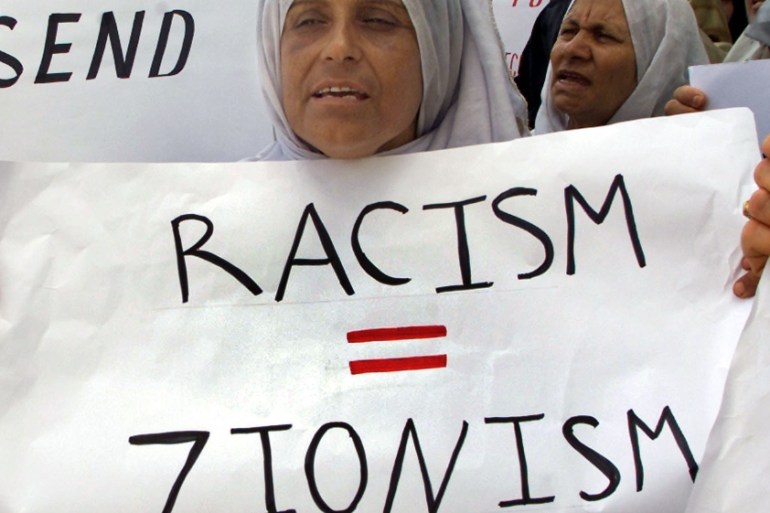
They call it double punishment, or at least that’s what Yonathan Arfi, vice president of the Representative Council of French Jews, describes it. False narratives from Jews, and then coming from people who are Jewish. Stephen Miller, anyone? Remember his prominence in Trump-Alt-Hatred politics? So, Zemmour is Jewish, espouses supremacist views of whites (Jews over Goyim, but he doesn’t yammer too much on that), and he thinks all women are baby breeders and do not have the capacity for politics and can’t be geniuses. So, the legitimacy he claims as a Jew with his Nazi patina, well, that is the double take, double tap, double punishment.
So many will question how much Zemmour truly engages with his Jewish identity – but, as philosopher Bernard-Henri Lévy argues, that has become irrelevant. Despite rigorous criticism from the Jewish community, “what Mr. Zemmour does, whether he likes it or not, [is] in the Jewish name”. (source)

They all do land with parachutes, pariahs and war criminals, one and all.
Israeli military hegemony is indeed no long-term guarantee of US interests in the region, but the scale of the US-Israel military relationship and the close synchronization of US and Israeli strategy down to the present are determined by a strategic calculus, not by sentiment. Kissinger’s comments do reflect an important shift in US policy at this time, towards greater reliance on compliant Arab regimes to preserve the status quo. But Israel’s function as a “strategic asset” is no mere rhetorical flourish of Ronald Reagan’s campaign. US policy, in 1975 as now, aimed to enhance Israel’s strategic capacity in the region, consolidate friendly Arab regimes, and to isolate and debilitate the Palestinian movement.
— “Kissinger Memorandum: ‘To Isolate the Palestinians,’” Middle East Report, 96 (May/June 1981).
In a recent interview with the New York Times, Pulitzer-prize winner Alice Walker caused much controversy by recommending David Icke’s book And the Truth Shall Set You Free, claiming it was “a curious person’s dream come true”.
Many reacted sharply to Walker’s endorsement of what is widely considered to be an anti-Semitic book, accusing her of embracing Icke’s racist conspiracy theories; others, like Palestinian-American writer Susan Abulhawa, defended Walker, claiming her ideas are anti-Zionist and not anti-Semitic. In her article, In defence of Alice Walker, Abulhawa claimed Palestinians are “killed, humiliated and destroyed in visible and invisible ways by Israel’s notions of Jewish supremacy”.
— Yoav Litvin, “The Zionist fallacy of ‘Jewish supremacy,’” Al Jazeera

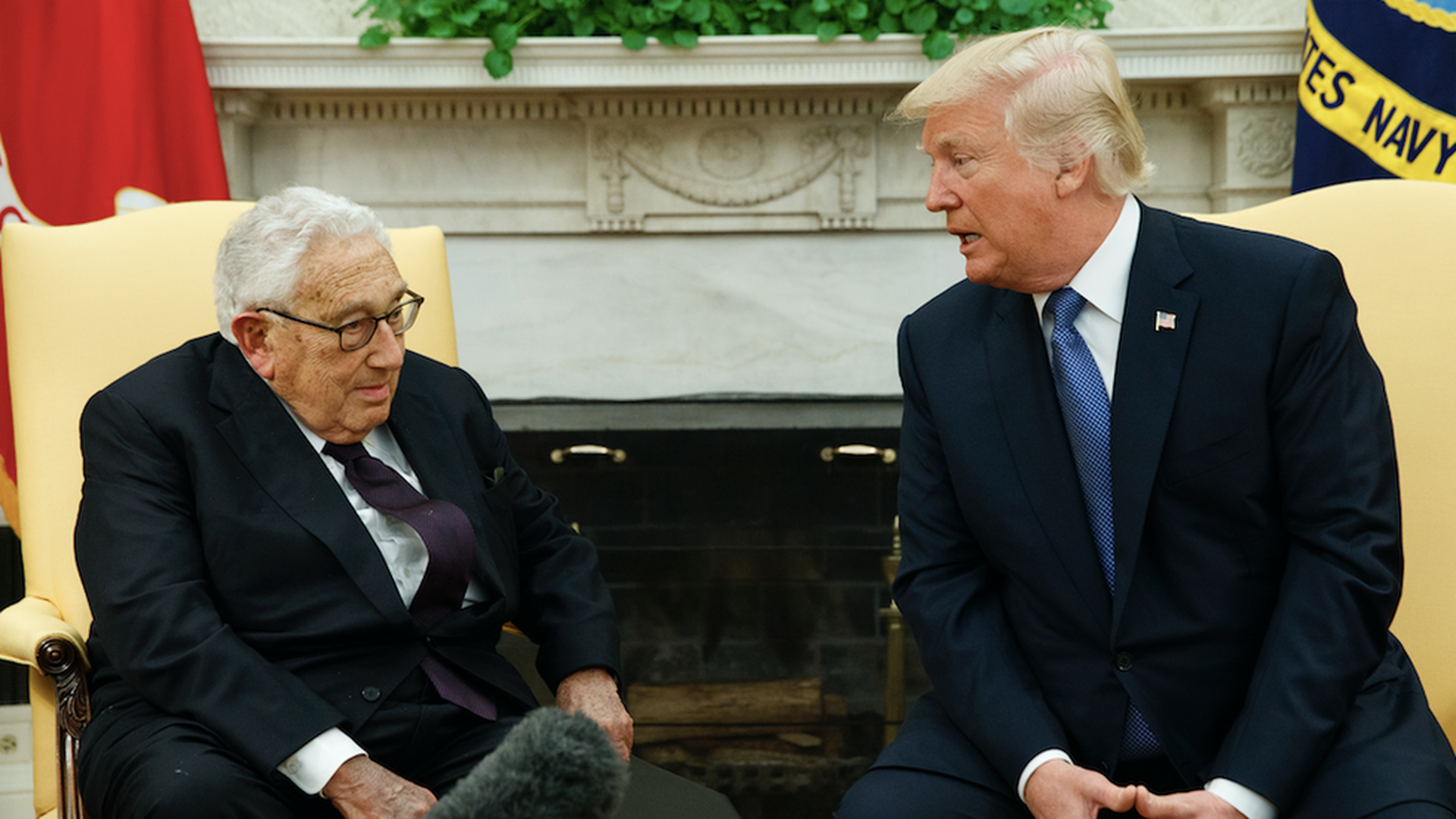
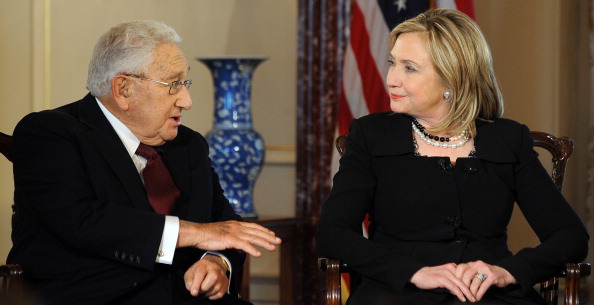
On December 2, Democracy Now— Read the transcript and see more of Diallo’s words.
We go now to France where we are joined by French journalist and filmmaker Rokhaya Diallo. Her latest op-ed for the Washington Post is headlined Josephine Baker enters the Panthéon. Don’t let it distract from this larger story. Thank you so much for joining us, Rokhaya. Why don’t you start off by telling us that larger story and then go into the significance of Josephine Baker being recognized?
Rokhaya Diallo: Thank you so much for inviting me. I am very happy—to me, it’s very good news to finally have a woman of color in the Panthéon, which is, as you said, one of the most prestigious places to welcome the most revered French figures. It is something that is very meaningful, because as well as being an entertainer, she was also a hero of resisting during the Second World War but also took part to the March on Washington. As you said, she was the only woman.
But there are two things that left me with mixed feelings. First, the fact that France tends to use the fact that it has been very welcoming to African Americans throughout the 20th century to picture itself as a very open and welcoming country. But the thing that we tend to forget is that while Josephine Baker was celebrated and dancing on Parisian stages, France was a very violent colonial power, so it was also colonizing Africa and Asia and also the Caribbean, and perpetrating very much violence to people who were colonized and also displaying them in what was called at that time the Colonial Exhibitions, which were basically human zoos where you could see people coming from the colony to be seen by visitors from Paris and from other regions of France.
So there was a double standard with African Americans being welcomed because they were American and didn’t have any historical agreement to settle with France. At the same time, other people of color were actually submitted to the French state.
I go back to New Zealand, because it is very easy to believe New Zealand is this great, well-run, law abiding, great place!


Sources:
“World’s Super Rich Buying Pandemic Escape Mansions in New Zealand”
A number of the planet’s richest people, including billionaire co-founder of Paypal Peter Thiel, are escaping to New Zealand to shelter in luxury bunkers amid the COVID-19 pandemic.
This post was originally published on Dissident Voice.
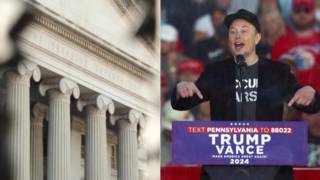
Elon Musk, the tech billionaire and unelected adviser to President Donald Trump, is asserting control over much of the federal bureaucracy and sensitive government computer systems despite lacking clear authority. The highest-ranking career official at the Treasury Department was pushed out after refusing to hand Musk’s team the keys to the government’s entire payment system and the $6 trillion in payments the system processes annually, including Social Security checks, tax refunds and Medicare benefits. Musk and his team have also seized control at the Office of Personnel Management and the General Services Administration, key institutions that function as the central nervous system of the U.S. government. “In any other situation, this would be called state capture, and people around the world would be condemning it,” says Democratic strategist Waleed Shahid, who writes in a new blog post that Elon Musk is staging a coup. We also speak with Lindsay Owens, executive director of the Groundwork Collaborative, who warns that Musk could be laying the groundwork for major tax cuts Republicans have promised that will disproportionately benefit corporations and wealthy people like him. “Elon Musk is going to pay for his tax cut with your Social Security,” says Owens.
This content originally appeared on Democracy Now! and was authored by Democracy Now!.
This post was originally published on Radio Free.
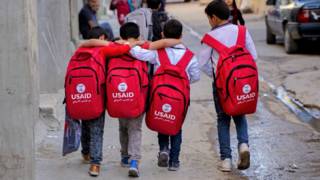
The future of USAID, the U.S. Agency for International Development, is uncertain after Elon Musk said President Trump had agreed to shut it down. The Tesla billionaire and presidential adviser has inserted himself into the inner workings of the federal government, gaining access to sensitive computer systems and making sweeping changes for which he has no clear authority. Over the weekend, the USAID website and social media channels were taken offline, and two top security officials at the aid agency were placed on administrative leave after attempting to block members of Musk’s so-called Department of Government Efficiency, or DOGE, from accessing USAID’s classified systems, including personnel files. Musk claimed in a series of posts on his website X that USAID is a “viper’s nest of radical-left Marxists who hate America,” and staff were instructed to stay away from the agency’s Washington headquarters on Monday. “What we are seeing … are attacks against it as a corrupt and illegal organization by people who know nothing about it. They are manufacturing these things out of whole cloth,” says former senior USAID staffer Jeremy Konyndyk, now president of Refugees International. “It’s really important to understand that a lot of what USAID does saves lives every single day.”
This content originally appeared on Democracy Now! and was authored by Democracy Now!.
This post was originally published on Radio Free.
Democracy Now! Monday, February 3, 2025
This content originally appeared on Democracy Now! Audio and was authored by Democracy Now!.
This content originally appeared on Democracy Now! and was authored by Democracy Now!.
This post was originally published on Radio Free.
This content originally appeared on Democracy Now! and was authored by Democracy Now!.
This post was originally published on Radio Free.
This content originally appeared on Democracy Now! and was authored by Democracy Now!.
This post was originally published on Radio Free.
This content originally appeared on Democracy Now! and was authored by Democracy Now!.
This content originally appeared on Democracy Now! and was authored by Democracy Now!.
This post was originally published on Radio Free.
This content originally appeared on Democracy Now! and was authored by Democracy Now!.
This post was originally published on Radio Free.
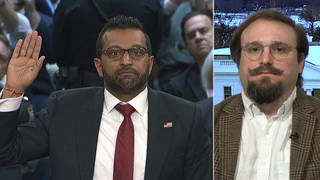
President Donald Trump’s nominee for FBI director, Kash Patel, a Trump loyalist who has promoted right-wing conspiracy theories, is “one of Donald Trump’s most disturbing picks” who seems poised to use the office to go after journalists and other Trump critics, says Chip Gibbons of the civil liberties organization Defending Rights & Dissent.
This content originally appeared on Democracy Now! and was authored by Democracy Now!.
This post was originally published on Radio Free.
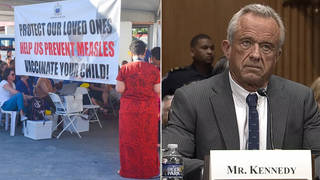
The second day of confirmation hearings for Trump’s secretary of health and human services nominee Robert F. Kennedy Jr. again focused on his long record of vaccine skepticism, his shifting position on abortion and his professional inexperience in public health. Kennedy was questioned about his role in a deadly measles outbreak in Samoa in 2019. Dr. Alec Ekeroma, the director general of Samoa’s Health Ministry, says Kennedy promoted anti-vaccine misinformation in the country, leading to the deaths of 83 people, the majority of whom were young children. “He is the preeminent anti-vax campaigner in the world,” adds investigative journalist Brian Deer, who has been following the anti-vaccine movement for years. Kennedy has “no medical or scientific qualifications at all.”
This content originally appeared on Democracy Now! and was authored by Democracy Now!.
This post was originally published on Radio Free.
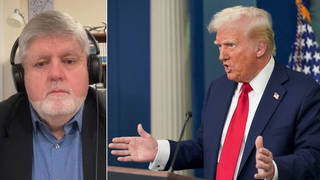
Donald Trump is blaming DEI for the deadliest U.S. aviation disaster in more than two decades, when a regional jet and a U.S. Army helicopter collided over a Washington, D.C. airport, killing 67 people. “We have a long list of problems that need to be addressed. … Instead, we’re talking about a nonsensical issue that is not based in fact,” says FAA-licensed aircraft dispatcher Bill McGee, who says criticisms of DEI distract from and work against a critical staffing shortage at the FAA. McGee also discusses the dangerous politicization of the FAA and the increasing influence of Elon Musk, CEO of SpaceX, over the aviation industry.
This content originally appeared on Democracy Now! and was authored by Democracy Now!.
This post was originally published on Radio Free.
Democracy Now! Friday, January 31, 2025
This content originally appeared on Democracy Now! Audio and was authored by Democracy Now!.
This post was originally published on Radio Free.
This content originally appeared on Democracy Now! and was authored by Democracy Now!.
This post was originally published on Radio Free.
This content originally appeared on Democracy Now! for Broadcasters – HD MP4 and was authored by Democracy Now! for Broadcasters – HD MP4.
This post was originally published on Radio Free.
This content originally appeared on Democracy Now! and was authored by Democracy Now!.
This post was originally published on Radio Free.
This content originally appeared on Democracy Now! and was authored by Democracy Now!.
This post was originally published on Radio Free.
This content originally appeared on Democracy Now! and was authored by Democracy Now!.
This post was originally published on Radio Free.

We speak with Palestinian writer and analyst Muhammad Shehada about the ceasefire in Gaza, which has allowed half a million displaced people to return to what’s left of their homes in the north of the territory, as Israel’s ban on UNRWA goes into effect. Hamas militants released another three Israeli captives Thursday, as well as five Thai nationals, all of whom were taken to Gaza during the October 7, 2023, attack. In exchange, Israel will release another 110 imprisoned Palestinians, including 30 children. But while the first phase of the Gaza ceasefire continues to hold, Israeli forces are ramping up attacks on the occupied West Bank, particularly in the Jenin refugee camp. “Israel is trying to turn [Jenin] into a clone of Gaza — ethnic cleansing, pushing people out and destroying homes systematically, one after the other. All of it is to explode the West Bank, to use it as a pretext for a major war to push Palestinians out,” says Shehada.
This content originally appeared on Democracy Now! and was authored by Democracy Now!.
This post was originally published on Radio Free.

Rescue workers in Washington, D.C., have launched a massive recovery operation in the Potomac River after a regional passenger jet and an Army Black Hawk helicopter collided midair late Wednesday, with both aircraft crashing into the water. American Airlines Flight 5342 had 60 passengers and four crew members on board and was en route to Ronald Reagan Washington National Airport from Wichita, Kansas. The Black Hawk helicopter had three soldiers on board conducting a training flight. Officials believe there are no survivors. The deadly crash comes amid upheaval and staffing changes in the Federal Aviation Administration and the Transportation Security Administration due to President Donald Trump’s ongoing purge across federal government agencies. Journalist David Sirota of The Lever says the airport also recently had its air traffic increased by lawmakers despite objections. “There is a very deep safety concern at this airport because there had been a series of near misses,” says Sirota. “These warnings about expanding the flight traffic at this airport came just a few months ago.” He also discusses the first 10 days of the Trump administration.
This content originally appeared on Democracy Now! and was authored by Democracy Now!.
This post was originally published on Radio Free.